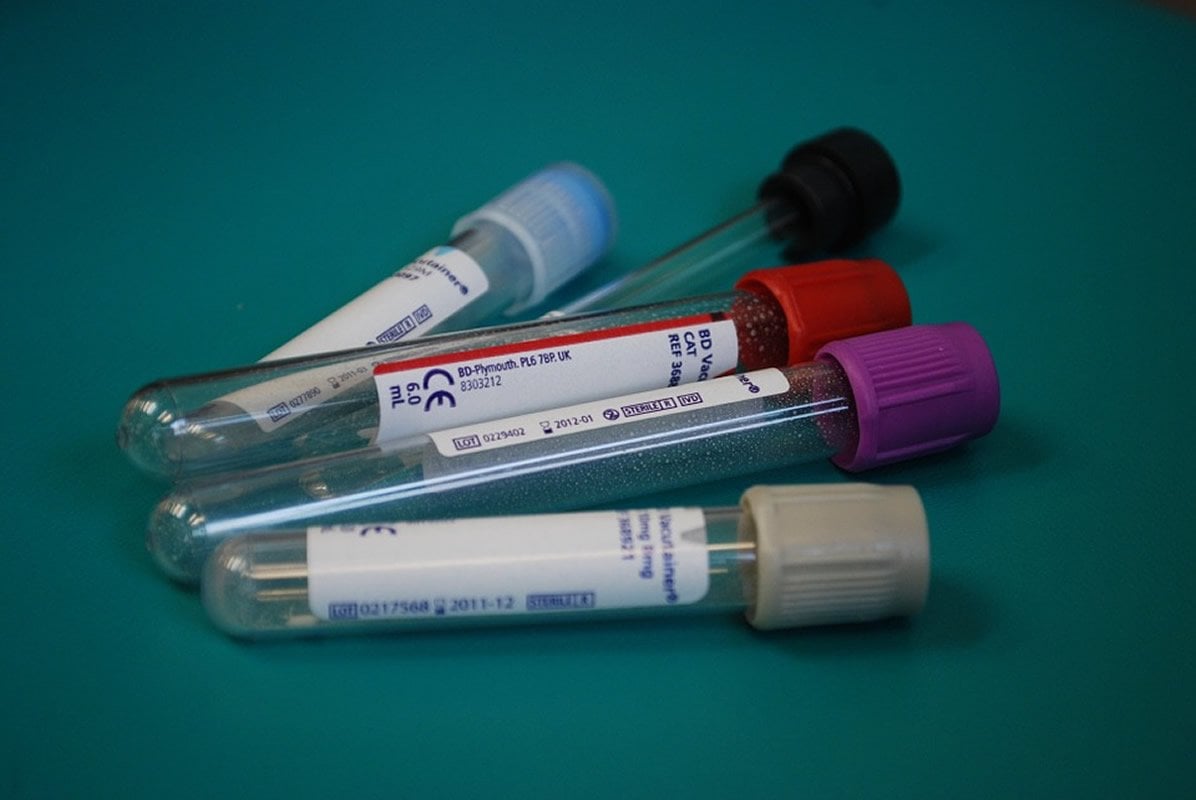Summary: Novel biomarkers for glioblastoma brain cancer have been identified in bodily fluids. The discovery may lead to a new, simple, non-invasive blood test to detect brain cancer in the future.
Source: University of Sussex
New research by Sussex scientists could be the first step towards developing a blood test to diagnose the most aggressive type of brain tumour, known as Glioblastoma.
A team from Professor Georgios Giamas’ lab at the University of Sussex has identified novel biomarkers within bodily fluids, which signal the presence of the tumour.
Cancer biomarkers are molecules that are either exclusively found or over-expressed in cancer cells, as compared to ‘normal’, healthy cells. Biomarkers can be considered as biological signatures for a disease, as they indicate the presence of cancer in the body.
In a new paper published today in the Nature journal Communications Biology, Professor Georgios Giamas and his team describe particular biomarkers that are associated with extracellular vesicles – small ‘packages’ released by cells into bodily fluids so cells can communicate with each other.
The discovery suggests that bodily fluids like blood could be a simpler way to test for glioblastoma, rather than a biopsy, which is both invasive and painful for the patient as well as taking considerable time to get the results.
Georgios Giamas, Professor of Cancer Cell Signalling in the School of Life Sciences said: “At the moment, the outlook for glioblastoma patients is bleak. As the most aggressive type of brain tumour, survival rate is low.
“Our research provides more information about the markers which can signal the presence of glioblastoma – and the fact we’ve been able to identify ones that are associated with extracellular vesicles, suggests that there could be a way to use bodily fluids to test for the tumour in future.”
Currently, a growing body of research is looking into the possibility of developing liquid-biopsies like blood tests to spot other types of cancers (e.g. pancreatic). Rather than taking a piece of tissue from a respective organ, liquid biopsies would allow doctors to take a small sample of blood and test for a range of biomarkers which will help identify the subtype of tumour.
Dr Thomas Simon, co-author of this study, highlighted that: “Liquid biopsies mean a less invasive procedure for patients, and arguably quicker results – something which is invaluable for those with an aggressive tumour that severely cuts life expectancy.
“But it could also mean better patient follow-up care, as a simple test can be carried out to check for the efficacy of existing treatments or for monitoring relapse.
“The more we know about biomarkers the better, so this is a step which should provide hope for anyone whose lives have been impacted by glioblastoma.”
There are three sub-types of glioblastoma which all have biomarkers containing different information. The more researchers find out about these signatures, the more work can be done to improve the accuracy of diagnosis and to personalise treatment depending on the sub-type of cancer.
Rosemary Lane, a PhD student in Professor Giamas’ lab and co-author of the study, added: “Glioblastoma subtyping is crucial for patient prognosis and personalised therapies. The fact that we can identify these molecular differences in extracellular vesicles is very exciting and will be of huge importance for discovering new biomarkers in the future.”

Marian Vintu, a neurosurgeon and co-author, said: “Clinical research in brain cancer is such a powerful tool to expand our knowledge in this terrible disease and improve our patient’s outcome.”
The next step for Professor Giamas’ team will be to test and validate the presence of these newly described biomarkers in glioblastoma patients.
The research, funded by the charity Action Against Cancer, suggests that this technique could ultimately become an option for diagnosing glioblastoma.
Source:
University of Sussex
Media Contacts:
Stephanie Allen – University of Sussex
Image Source:
The image is in the public domain.
Original Research: Open access
“Cell-derived extracellular vesicles can be used as a biomarker reservoir for glioblastoma tumor subtyping”. Rosemary Lane, Thomas Simon, Marian Vintu, Benjamin Solkin, Barbara Koch, Nicolas Stewart, Graeme Benstead-Hume, Frances M. G. Pearl, Giles Critchley, Justin Stebbing & Georgios Giamas.
Communications Biology. doi:10.1038/s42003-019-0560-x
Abstract
Cell-derived extracellular vesicles can be used as a biomarker reservoir for glioblastoma tumor subtyping
Glioblastoma (GBM) is one of the most aggressive solid tumors for which treatment options and biomarkers are limited. Small extracellular vesicles (sEVs) produced by both GBM and stromal cells are central in the inter-cellular communication that is taking place in the tumor bulk. As tumor sEVs are accessible in biofluids, recent reports have suggested that sEVs contain valuable biomarkers for GBM patient diagnosis and follow-up. The aim of the current study was to describe the protein content of sEVs produced by different GBM cell lines and patient-derived stem cells. Our results reveal that the content of the sEVs mirrors the phenotypic signature of the respective GBM cells, leading to the description of potential informative sEV-associated biomarkers for GBM subtyping, such as CD44. Overall, these data could assist future GBM in vitro studies and provide insights for the development of new diagnostic and therapeutic methods as well as personalized treatment strategies.






